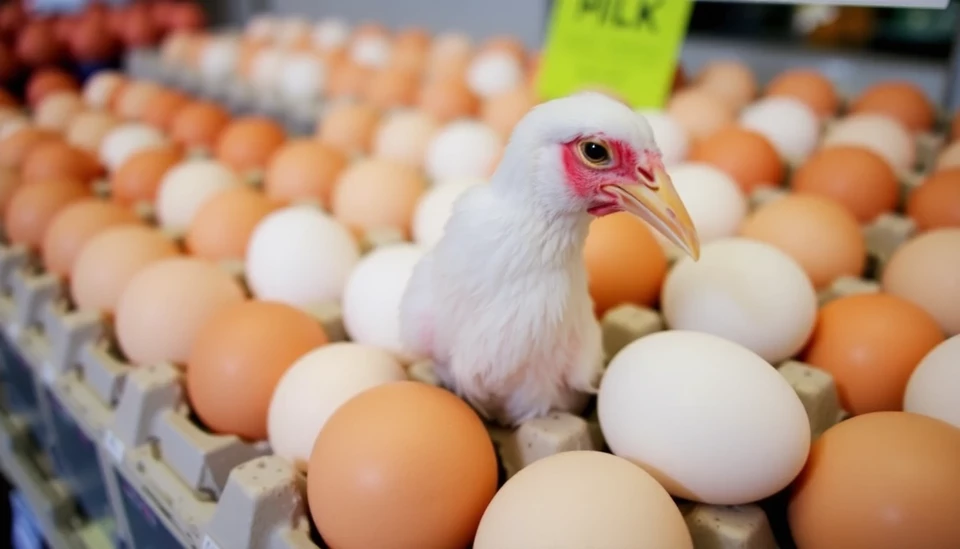
In a startling development for consumers and the food market alike, egg prices have surged to unprecedented levels. Retailers have responded to ongoing supply chain uncertainties by maintaining elevated prices, much to the dismay of shoppers. This sustained price hike raises questions about the impact on consumer behavior and the overall agricultural economy.
The escalating prices, driven by multiple factors including production challenges and increased demand, have shattered previous records. Current average retail prices for a dozen eggs have reached mind-boggling figures, forcing consumers to reconsider their grocery budgets and dietary choices. Analysts predict that these high prices may persist, creating an ongoing strain on households across the nation.
Several key influences are attributing to this rise in egg prices. For one, the avian flu outbreak remains a critical issue, leading to significant losses among poultry stocks. The disease has prompted farmers to cull large numbers of birds, shrinking the supply of eggs on the market. Moreover, logistical challenges compounded by global supply chain disruptions have further complicated the ability to meet consumer demand.
As retailers grapple with these supply fears, many have opted to uphold higher prices rather than risk running out of inventory. This has ignited debates among consumers about food affordability and the necessity of spending more on essential items. Experts warn that if prices do not stabilize soon, shoppers might opt for alternative protein sources or reduce their overall consumption of eggs.
With the increasing awareness of food prices, many communities are now beginning to rally for more sustainable agricultural practices that can help mitigate such vulnerabilities in the future. These discussions emphasize the need for a robust strategy to shield the food supply from disruptions while ensuring affordability for consumers.
The trajectory of egg prices in the coming months remains to be seen. However, the current trend serves as a warning signal for food security and highlights the importance of addressing agricultural practices and food supply chain management effectively.
As the situation develops, consumers are advised to stay informed and shop wisely. As the potential for further price fluctuations looms, effective budgeting and meal planning will be essential for families navigating this challenging economic climate.
#EggPrices #FoodSupply #ConsumerTrends #GroceryCosts #AgriculturalEconomy
Author: Victoria Adams




